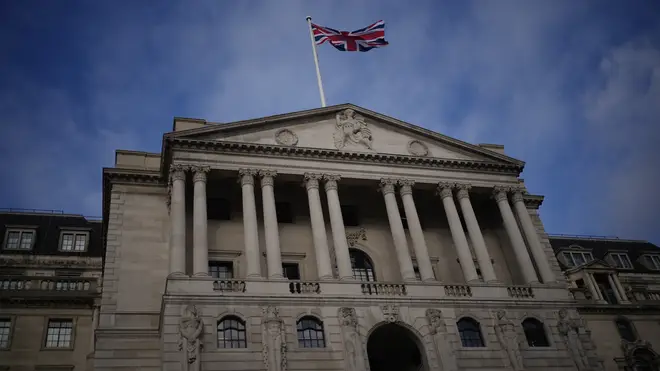
Nick Ferrari at Christmas 1pm - 3pm
15 May 2023, 18:34

Huw Pill, chief economist at the central bank, said he should have used language that was ‘less inflammatory’.
The Bank of England’s top economist has said he should have been more careful over his wording after he faced criticism for indicating that some British households or businesses “need to accept” they are poorer.
Huw Pill, chief economist at the central bank, said the country’s economy is facing “very difficult and challenging” times but that he should have used language that was “less inflammatory”.
It came after he told a podcast last month: “You don’t need to be much of an economist to realise that if what you’re buying has gone up a lot relative to what you’re selling, you’re going to be worse off.
“So, somehow in the UK, someone needs to accept that they’re worse off and stop trying to maintain their real spending power by bidding up prices whether through higher wages or passing energy costs on to customers etc.
“What we’re facing now is that reluctance to accept that, yes, we’re all worse off and we all have to take our share.”

Governor of the Bank Andrew Bailey told reporters last week that there has been a hit to national income but that the wording was “not the right one”.
On Monday, in an public Q&A session, Mr Pill said: “If I had the chance again to use different words I would use somewhat different words to describe the challenges we all face.
“I think the viral response to my words perhaps hasn’t been very helpful to our communication or our understanding of the situation.
“I think much more importantly, it’s important to recognise from the outset that from an institutional point of view, from the position of the Bank of England, and also from a personal perspective, that we do recognise that we live in very difficult and challenging times and those challenges are particularly acute for some parts of society.”
It comes as the Bank attempts to grapple rampant inflation, fuelled by energy and food price increases.
Last week, the central bank hiked interest rates for a 12th consecutive time to 4.5% – the highest level since 2008 – in an effort to try to bring inflation down.
The inflation rate was most recently recorded at 10.1% in March by the Office for National Statistics.
The Bank said it is forecast to drop to 5.2% by the end of the year.
However, Mr Pill stressed that inflation remains “unacceptably and undesirably high” and added that it is “vital” it does not stabilise at around 5% for a longer period.